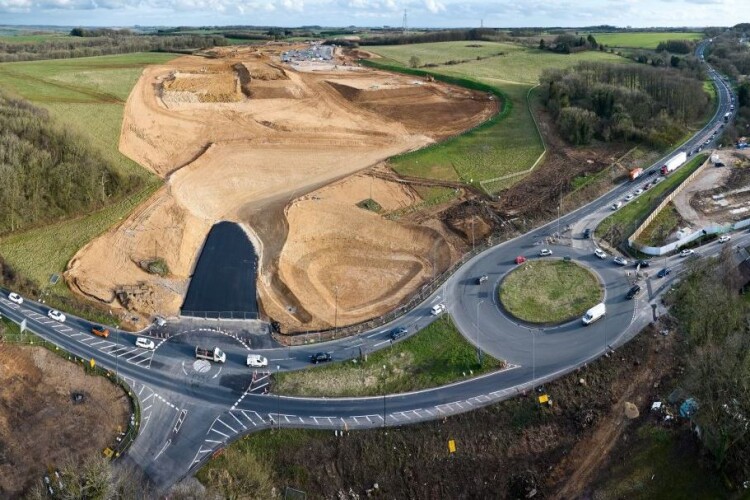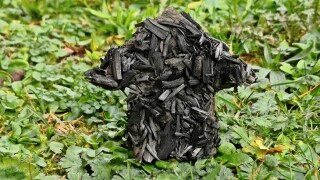Swansea University has carried out what are believed to be the world’s first laboratory trials to test the feasibility of removing microplastics from road runoff using biochar.
Biochar is created through the process of pyrolysis when organic materials are turned into a solid residue of refractory carbon under high temperatures (thermal decomposition) in the presence of little or no oxygen
The Swansea researchers, working with construction company Kier and RSK subsidiary TerrAffix Soil Solutions, found that there were no traces of microplastics in the road runoff.
TerrAffix chief technical officer Siôn Brackenbury explained that road runoff was composed of a variety of environmentally damaging contaminants including metals (including lead, copper, zinc and cadmium), hydrocarbons and microplastics.
“Microplastics enter the water system by collecting in road dust through sources such as tyre wear, polymer-modified bitumen used in road pavement, some road marking paints and road pavement made of recycled plastics,” he said. “The microplastics in road dust are washed into waterways during storms, making runoff one of the primary sources of microplastics in water systems. The ubiquitous nature of microplastics in natural environments, alongside their potential to transmit harmful pathogenic microorganisms and enter the food chain with associated risks to ecosystems and human health have caused global concern.”
The next step for the collaboration is to look at how effective the biochar solution is over time. It will be put to the test on Kier’s A417 project, with details of the road trial in design now.

TerrAffix managing director Mark Smith said: “Our companies were well aware of the concern about the impact of microplastics entering the environment from the surface water than runs off from our roads and enters the environment, including our water infrastructure, and we wanted to use our collective expertise to arrive at solution.
“TerrAffix and Kier could immediately see the opportunity to not only use biochar to reduce carbon emissions but to create a second, equally powerful contribution to environmental challenges. Now that the process to remove microplastics has been proven to be successful in the lab, we are, of course, keen to take it on the road to further demonstrate the process in the field. A mobile means of processing vegetation, cutting carbon and tackling microplastics is a huge innovation for the larger infrastructure and development sectors in the UK and, of course, across the world.”
Matt Tompsett, head of environment & sustainability at Kier Transportation, said: “We’ve been aware of the hidden impact of microplastics generated by the highways network for years. Ever since, we’ve been raising awareness of this issue and we know it’s a problem that needs addressing.
“We wanted to focus on a solution that could be deployed at scale within highway drainage systems. I had high hopes that biochar would be effective at removing microplastic, but the fact that there were no traces of microplastic is fantastic. Globally, there are no published papers at all which look at road runoff and microplastic removal using biochar, so this research is breaking new ground. As with all good research projects, they raise questions as well an answer them. We now know that biochar is very effective at removing microplastic from road runoff, but we don’t know if this effectiveness diminishes over time, so the next step will be to use in a real-world scenario on our National Highways A417 Major Project to find out.”
Got a story? Email news@theconstructionindex.co.uk



